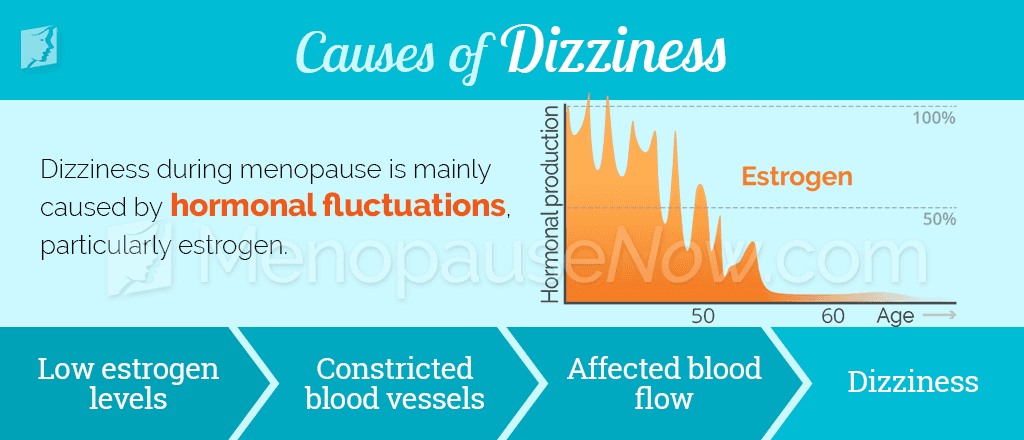It can be difficult to determine how many women suffer from dizziness at some time during their life, because many deem it not significant enough to visit the doctor. It is estimated; however, that around 15% of the general population will encounter a sensation of dizziness each year. Understanding some of the main causes of dizziness is advantageous, because when the root of your condition is known, you are better equipped to decide what to do about it.
Diagnosing Dizziness
The term “dizziness” can mean different things to different women, so for this reason, it can be difficult for doctors to reach an accurate diagnosis until they have examined any other symptoms you are experiencing too. They will then consider the main causes of dizziness, which are not usually serious conditions. Having said this, however, it is possible for dizziness to be a symptom of an important health matter, and so these may be explored if your doctor cannot come to a conclusion about why you are suffering.
Causes of Dizziness
Dizziness can be caused by different conditions; some of the main causes of dizziness including the following.
Hormonal causes
Shifting estrogen levels during menopause can produce changes in the blood vessels and nervous system, which can cause dizziness. In addition, estrogen and progesterone fluctuate during menstruation and pregnancy. These hormone fluctuations can cause migraines and dizziness, among other frustrating symptoms.

Poor diet or dehydration

The recommended daily intake for an adult woman is between 1,800 and 2,200 calories, as well as the equivalent of six to eight glasses of water. Without these, you can become dehydrated and de-energized, both of which can cause feeling faint and dizzy. Dizziness could also have to do with consuming an inadequate amount of food or water.
Nausea and vomiting

When you suffer from nausea, it can often lead to or occur in conjunction with headaches and feeling disorientated and dizzy.
Many people suffer from nausea due to motion sickness, which can cause dizziness. Additionally, becoming overheated this may result in feeling like you might pass out. Unfortunately, this latter cause is common among menopausal women due to the hot flashes they experience. Other conditions that cause nausea - such as migraines, fevers, and food poisoning - can also lead to dizziness.
Low blood pressure

A sudden dip in blood pressure that occurs when you stand up or sit up quickly can cause a dizzy feeling. This phenomenon is known as postural or orthostatic hypotension, and unfortunately, it becomes increasingly frequent as you grow older. You may become slightly faint or lightheaded, and possibly experience a brightness coming into view. This feeling will usually pass after a few seconds, but as you grow older, it might be necessary to sit or lie down again for a minute or two.
This kind of imbalance-derived dizziness is usually nothing to be concerned about; however, if the sensation lasts for a prolonged amount of time, or you lose consciousness at all, it is important to discuss the matter with your doctor, as it could be a symptom of something more serious.
Labyrinthitis

This condition is a result of the presence of a virus or bacteria, which causes inflammation in the innermost portion of your ear. One of the affected components is called the vestibular system; this is a group of pipes that are full of fluid, which impact your sense of balance. When it is disturbed, it causes you to feel unsteady and dizzy. Labyrinthitis causes a vertigo-like sensation, meaning you feel like you or your surroundings are spinning. It can last between a few seconds and several minutes. Though rare, it is also possible for dizziness to continue for a longer period of time.
The possible causes of dizziness amount to a long list. Above are some of the more common circumstances that are known to account for its presence, and so by thoroughly evaluating these, it is often possible to determine the precise cause of your personal condition. Usually, dizziness is a short-term occurrence that passes after a minimal amount of time; however, it can sometimes be severe or constant. In this case, it is important that you talk to your doctor to get a thorough examination and diagnosis.
Sources
- Chimirri, S. et al. (2013). Vertigo/dizziness as a Drugs' adverse reaction. Journal of Pharmacology & Pharmacotherapeutics, 4(Suppl1), S104-S109. Retrieved from https://www.ncbi.nlm.nih.gov/pmc/articles/PMC3853661/
- Cleveland Clinic. (2015). You're Feeling Dizzy - Should You Be Worried? Retrieved May 5, 2017, from https://health.clevelandclinic.org/2015/09/youre-feeling-dizzy-should-you-be-worried/
- Mayo Clinic. (2014). Orthostatic hypotension (postural hypotension). Retrieved May 5, 2017, from http://www.mayoclinic.org/diseases-conditions/orthostatic-hypotension/basics/definition/con-20031255
- National Health Service UK. (2017). Labyrinthitis. Retrieved May 5, 2017, from http://www.nhs.uk/conditions/Labyrinthitis/Pages/Introduction.aspx
- National Heart, Lung, and Blood Institute. (2013). Balance Food and Activity. Retrieved May 5, 2017, from https://www.nhlbi.nih.gov/health/educational/wecan/healthy-weight-basics/balance.htm
